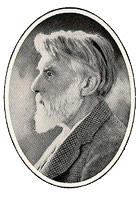Robert Seymour Bridges Biography
Robert Seymour Bridges was an English poet noted for his technical mastery of prosody and for his sponsorship of the poetry of his friend Gerard Manley Hopkins. Born into a prosperous family, Bridges went to Eton College and then to Oxford, where he met Hopkins. His edition of Hopkins' poetry that appeared in 1916 rescued it from obscurity. From 1869 until 1882 Bridges worked as a medical student and physician in London hospitals. In 1884 he married Mary Monica Waterhouse, and he spent the rest of his life in virtually unbroken domestic seclusion, first at Yattendon, Berkshire, then at Boar's Hill, devoting himself almost religiously to poetry, contemplation, and the study of prosody. Although he published several long poems and poetic dramas, his reputation rests upon the lyrics collected in Shorter Poems (1890, 1894). New Verse (1925) contains experiments using a metre based on syllables rather than accents. He used this form for his long philosophical poem The Testament of Beauty, published on his 85th birthday. Bridges was poet laureate from 1913 until his death in 1930.
When men were all asleep the snow came flying, In large white flakes falling on the city brown,
...
I will not let thee go.
Ends all our month-long love in this?
Can it be summed up so,
Quit in a single kiss?
...
My delight and thy delight
Walking, like two angels white,
In the gardens of the night:
...
So sweet love seemed that April morn,
When first we kissed beside the thorn,
So strangely sweet, it was not strange
We thought that love could never change.
...
Awake, my heart, to be loved, awake, awake!
The darkness silvers away, the morn doth break,
It leaps in the sky: unrisen lustres slake
...
